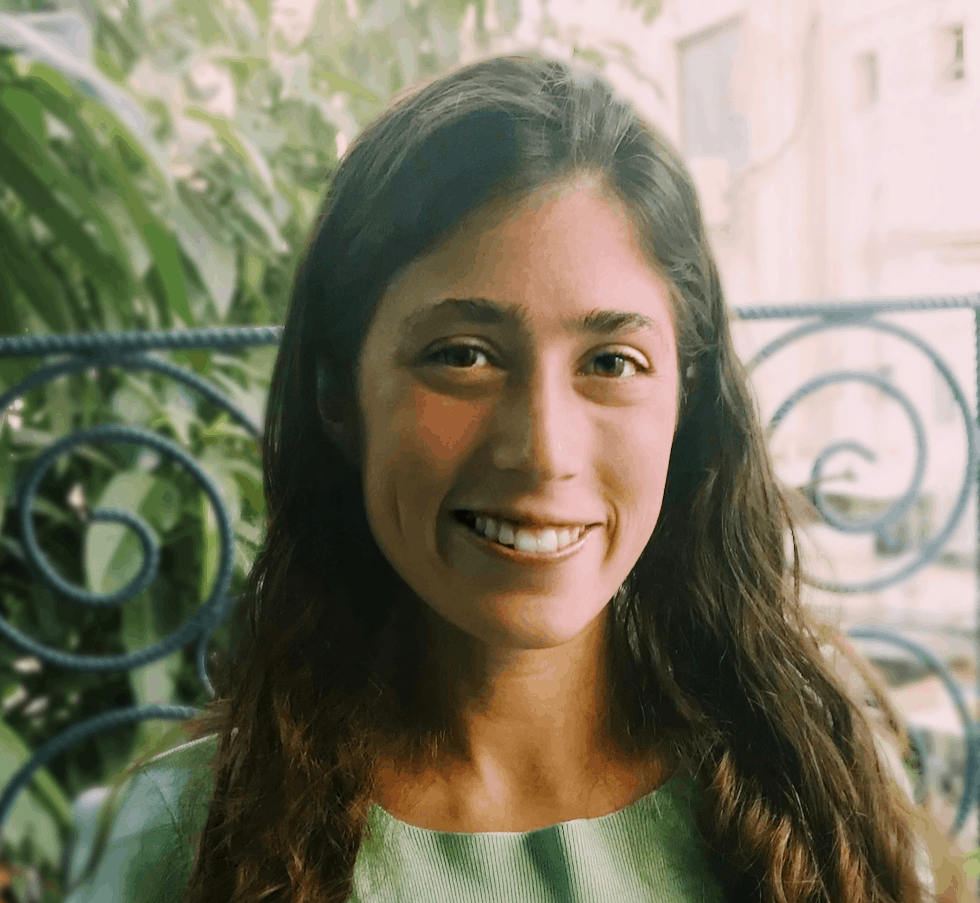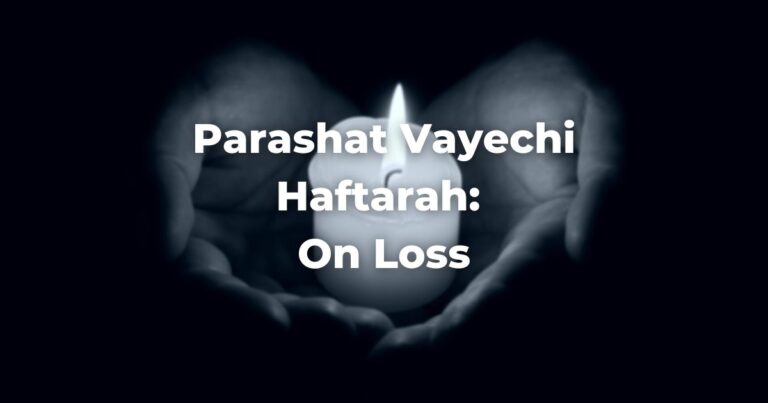As beautifully expressed in the musical, Hamilton,
“there are moments that the words don’t reach
there is suffering too terrible to name.”
Jeremiah tends to find himself in such moments. He is our prophet through the destruction of Judah, Jerusalem, and the First Temple.
Finding words when words don’t reach
Jeremiah’s calling is to let us know that the end of our homeland is coming. He did not want the job to begin with and he finds himself in all sorts of terrible situations as a result of doing his job well—he suffers death threats, imprisonment, and exile to Egypt, among other things.
In these moments, these moments beyond comprehension, Jeremiah’s speech fails him as well. There are moments that the words don’t reach.
Jeremiah is aware that sometimes there is nothing to say. When God first speaks to him, telling him that he has been chosen as a prophet, Jeremiah replies, “Ahhhhh! My Lord, God! Look, I don’t know speaking.” And although Jeremiah is, according to Jewish tradition, the writer of Lamentations, the one who turns the greatest suffering of our people into a series of acrostic poems addressed to God, Jeremiah retains always the ability to lose coherence, to abandon words when nothing can be said to improve a situation.
Using vocal gestures when words don’t reach
In these moments, we find interjections such as “ahhh,” “hoi,” and “oi.” As the great Biblical Hebrew grammarian Wilhelm Gesenius defines them, interjections are “vocal gestures.”
Speech, the tool of our intellect, is demoted to a tool of the body. We make sound instead of sense.
But the sounds ripped from our body carry great meaning. There are times for “ahhh” and times for “oi.”
In Biblical Hebrew, we tend towards “ahhh” as an expression of sorrow, regret and fear. “Oi” usually covers grief, despair, and anguish. It means something when we progress from an “ahhh” to an “oi.”
But most important, these noises are made for the person expressing them. They are not a form of outward expression; they do not serve as communication. Rather, they allow the speaker a moment of pure existence, of feeling, of living, before the speaker has to face the world once more.
In our haftarah, Jeremiah is commanded to purchase the field of his kinsman even as all the fields are seized by the invading Babylonian army.
God intends this purchase as a sign that there will be a time when life will go back to normal, when we will return to exile and live again in our land. Jeremiah does as he is commanded.
But he takes a moment.
Before he prays to God, praising God’s power and trying to understand this thing God has commanded him to do, Jeremiah opens his mouth to noise. He begins with an “ahhh.”
Because sometimes, allowing ourselves a primal scream, a moment of return to the world pre-speech and pre-action, is all that it takes to get us through to the moments where we can once again use speech to create the world we want to live in.
See more: Parashat Behar
Originally posted as part of the Conservative Yeshiva at the Fuchsberg Jerusalem Center’s Torah Sparks. Support TorahRefers to the first five books of the Hebrew Bible, the Tanakh, also called the Five Books of Moses, Pentateuch or the Hebrew equivalent, Humash. This is also called the Written Torah. The term may also refer to teachings that expound on Jewish tradition. Read more learning from the Fuchsberg Jerusalem Center/Conservative Yeshiva for leaders and seekers around the world here.
Authors
-

Bex Stern Rosenblatt is the Conservative Yeshiva’s Faculty-in-Residence for the Mid-Atlantic Region of the United States, teaching Tanach, using the techniques of close-reading, theater, feminist readings, and traditional commentators. Bex also directs the CY’s recruitment efforts in North America. After finishing her B.A. in History and German at Williams College, Bex received a Fulbright Grant to Austria. She later earned an M.A. in TanakhAn acronym for the name of the Hebrew Bible: Torah, Neviim, and Ketuvim. Read more from Bar Ilan University and has also studied at the Conservative Yeshiva and Bina Jerusalem. Bex is the founder of HavrutaA study partner. A hevruta is more than just a ‘study buddy’ it is a serious and personal relationship between colleagues. Also spelled: Havruta Read more Tel Aviv, an organization that facilitates guided pair-learning of the Tanakh.
View all posts -



The Fuchsberg Jerusalem Center (FJC) is a home in the heart of Jerusalem where leaders and seekers can find an authentic place in Jewish tradition to call their own. FJC offers opportunities to study, pray and explore within an egalitarian and inclusive setting, creating multiple pathways for finding personal and communal meaning.
View all posts






